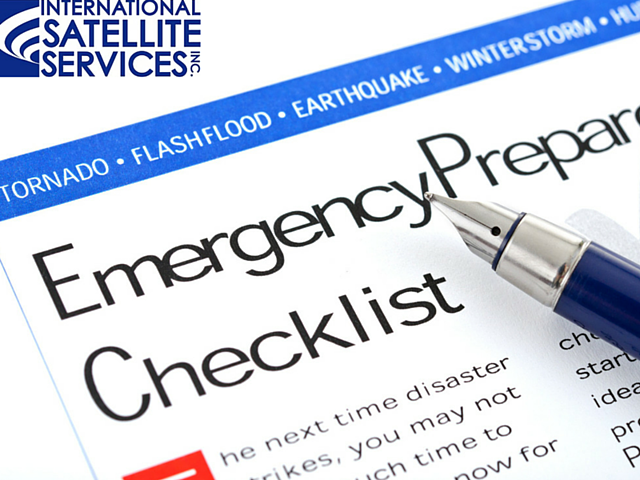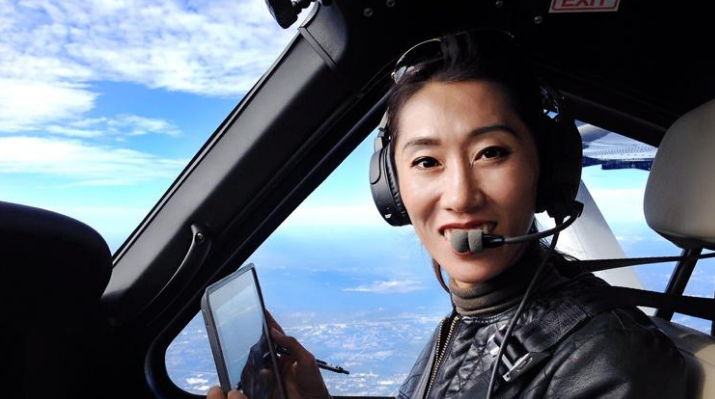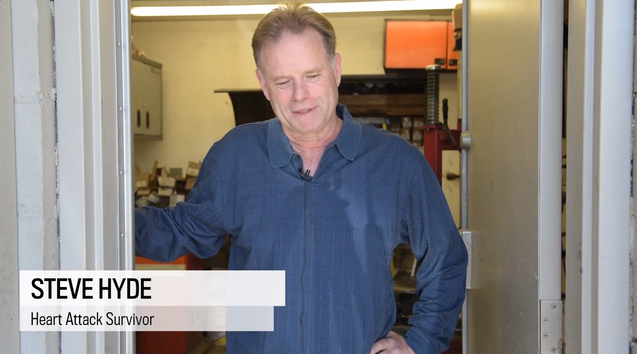Hurricane season is just getting underway in the Gulf Coast region.
If you missed Hurricane Preparedness Week (May 15-21, 2016), there’s still time to prepare. While hurricane season started June 1 and lasts until Nov. 30, many in New Orleans and the Gulf South know it’s good to be prepared year-round.
And at all times it seems connectivity should be a priority.
FEMA warns that in disasters small and large, “Phone lines can go down, cell service can be overrun with calls, texts and emails and it can be difficult for survivors as well as first responders to get in touch.” They caution: “This isn’t a far-fetched scenario or intellectual exercise. It’s a reality we’ve seen happen over and over.” FEMA recommends relying on satellite phones in these situations.
In some instances, a satellite phone and satellite technology can mean the difference between life and death, no matter the season. Just ask Michael Herrera, who recently became the 4,000th rescue for Globalstar, a satellite communications company relied upon globally and based in Covington, Louisiana.
Herrera, a retired Houston firefighter and motorcycle enthusiast, was off-roading alone in DeKalb County, AL, last December. He took a hard fall and sustained a broken collarbone, three broken ribs, and a partially collapsed lung. After activating Globalstar’s SPOT device, a location tracking device that can send out a beacon to emergency services and verify your GPS location, Herrera was rescued in less than 40 minutes despite being alone and in a remote area. SPOT averages approximately two rescues per day and to date, has been responsible for more than 4,300 rescues around the globe.
“It’s my angel on my shoulder,” says Herrera, adding that no matter where he rides he feels he’s only “as far as his backyard.” Having been a firefighter and knowing he won’t give up his hobby, Herrera recognizes the importance of having something to fall back on: “I like to have an escape plan.”
Looking back on his rescue, Herrera says that satellite phones or SPOT devices are “something you hope you’ll never need to use.” He adds, “I’m just glad I had it on that day.”
From a management perspective, it (satellite phone backup plan) is most vital in today’s market.
During Hurricane Katrina, more than 20 million calls did not go through, and six out of eight police district buildings had no communications. In some locations it took months to restore service. Many rescue personnel had their service restored and got back to duty thanks to the thousands of satellite phones donated by Covington’s Globalstar.
But emergencies can happen anytime and sometimes they happen when you’re out of cell phone range. Satellite phones have become a trusted device for adventurers, emergency personnel, maritime workers, recreational boaters, oil and gas personnel and anyone who lives, works or plays in areas with limited or no cellular service.
In addition, satellite devices provide business owners and operators the ability to stay connected regardless of cellular service.
Glenn Hanson, VP of Laboratories for Coastal Gulf & International in New Orleans, which services the petroleum and petrochemical industry and includes offshore work, says with constant communication such a necessity in his line of work, having a backup plan to stay connected is crucial.
“From a management perspective, it (satellite phone backup plan) is most vital in today’s market, with safety issues that may arise out in the Gulf of Mexico, or if there’s an equipment breakdown,” said Hanson, whose backup plan with CGI includes equipping the company with Globalstar satellite phones. “Now, we have the ability to communicate right away, whereas in the past we may not have had that.”
“In the event of natural disasters or when we are offshore, we need to have the ability to communicate. We can now communicate within our offices during those circumstances.”
Now, that’s staying connected.
Article Source










 To test, go outside (unless you have an external antenna configuration) Turn on your phone, extend the antenna toward the sky. Wait for the green LED Network indicator, Dial 001-480-752-5105 and press the green button to place your call.If your phone is working, you will hear a call completion confirmation message as well some quick tips on proper handset usage
To test, go outside (unless you have an external antenna configuration) Turn on your phone, extend the antenna toward the sky. Wait for the green LED Network indicator, Dial 001-480-752-5105 and press the green button to place your call.If your phone is working, you will hear a call completion confirmation message as well some quick tips on proper handset usage When testing your IsatPhone, make sure you are outside with a clear view of theUntitled_design_2.png sky and horizon. Power on the IsatPhone and rotate the antenna so it is pointing toward the sky. Let the phone acquire a GPS and register on the network. Dial the free Inmarsat test number: 001-8707-7699-9999 then press the green send button. If the call is successful you will hear a recorded message from Inmarsat.
When testing your IsatPhone, make sure you are outside with a clear view of theUntitled_design_2.png sky and horizon. Power on the IsatPhone and rotate the antenna so it is pointing toward the sky. Let the phone acquire a GPS and register on the network. Dial the free Inmarsat test number: 001-8707-7699-9999 then press the green send button. If the call is successful you will hear a recorded message from Inmarsat. Assuming you have active airtime, simply dial #TEST on your Globalstar satellite
phone. If you hear a recorded message from Globalstar, the phone is working.
Assuming you have active airtime, simply dial #TEST on your Globalstar satellite
phone. If you hear a recorded message from Globalstar, the phone is working.